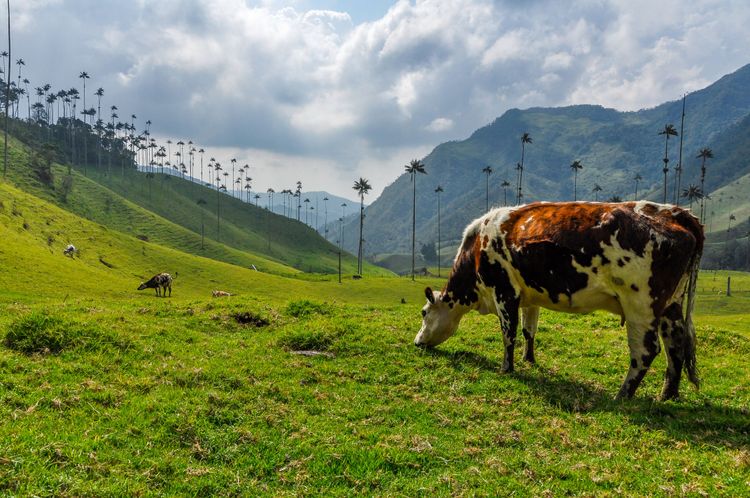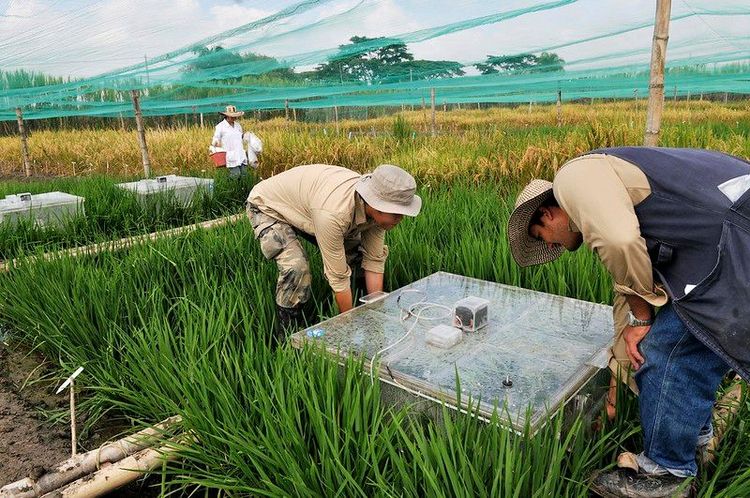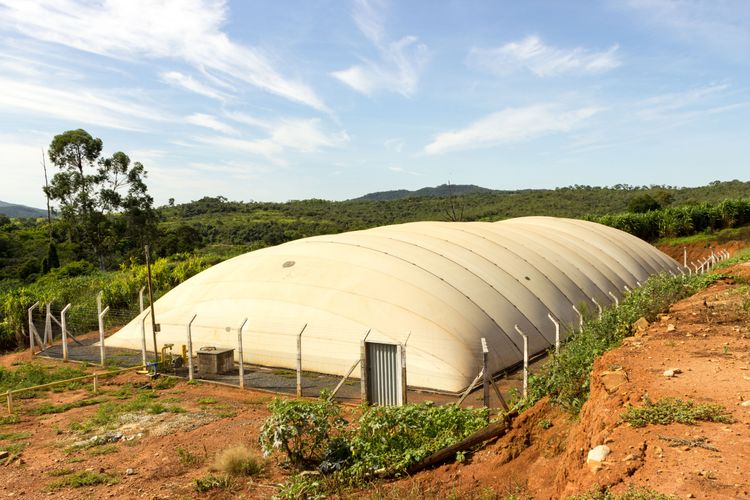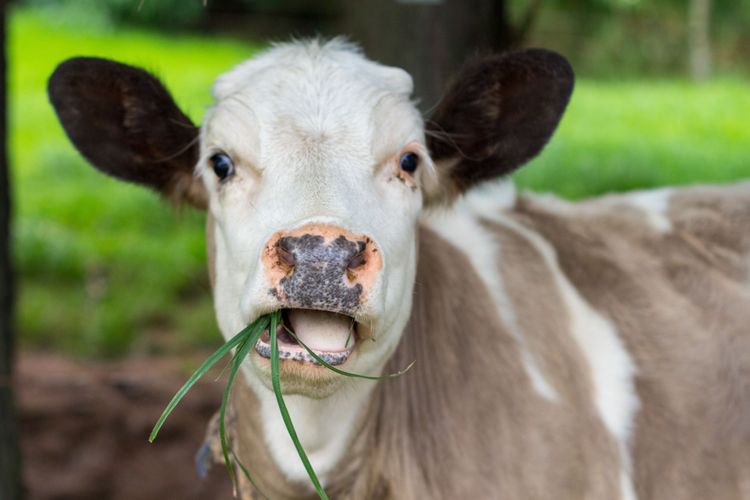Decreasing methane from the agriculture sector involves composting manure, altering cattle feed, consuming less meat and dairy products, and increasing how efficiently water is used in producing rice.
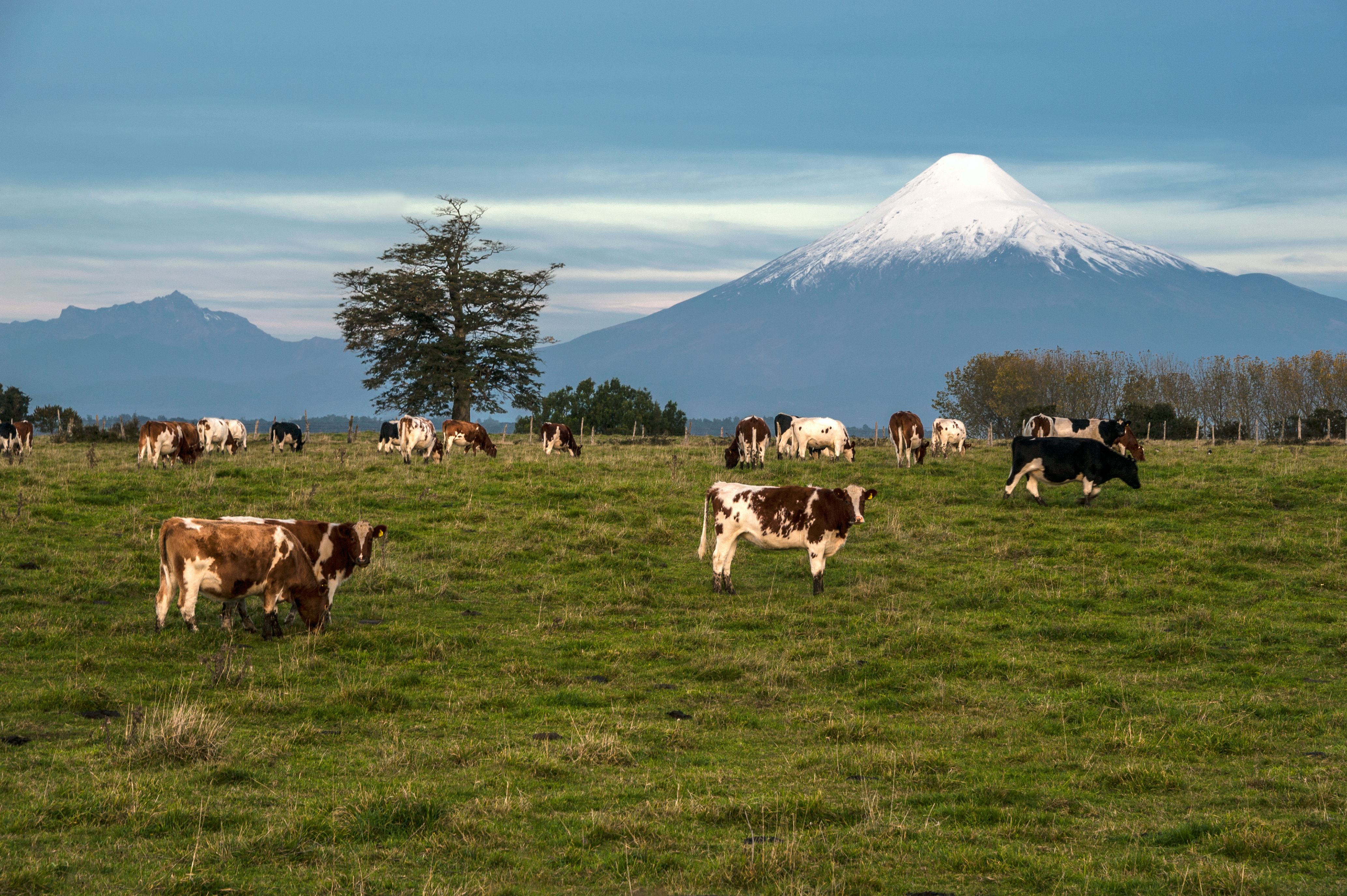
Major emissions sources
Methane emissions from agriculture come from four main sub sectors: enteric fermentation in livestock, livestock manure, rice cultivation, and biomass burning.
Enteric fermentation
Livestock raised for meat and milk—including cattle, buffalo, sheep, goats, and swine—emit methane when digesting food. Microorganisms in their digestive tract break down carbohydrates in grass, animal feed, and other food, producing methane as a byproduct when they burp. Cattle are the largest emitters.
Livestock manure
Methane is released when animal manure anaerobically decomposes. Anaerobic decomposition takes place when organic matter decomposes in the absence of oxygen, such as within a manure pile or if manure is covered by water in a water lagoon. Emissions tend to increase when a large number of animals are placed in a confined space.
Rice cultivation
Rice cultivation produces methane emissions as a result of the anaerobic decomposition of organic materials in flooded rice fields. Anaerobic decomposition takes place when organic matter decomposes in the absence of oxygen, such as when it is covered by water. Emissions from rice cultivation are shaped by the number and duration of crops and how water is used to cultivate them.
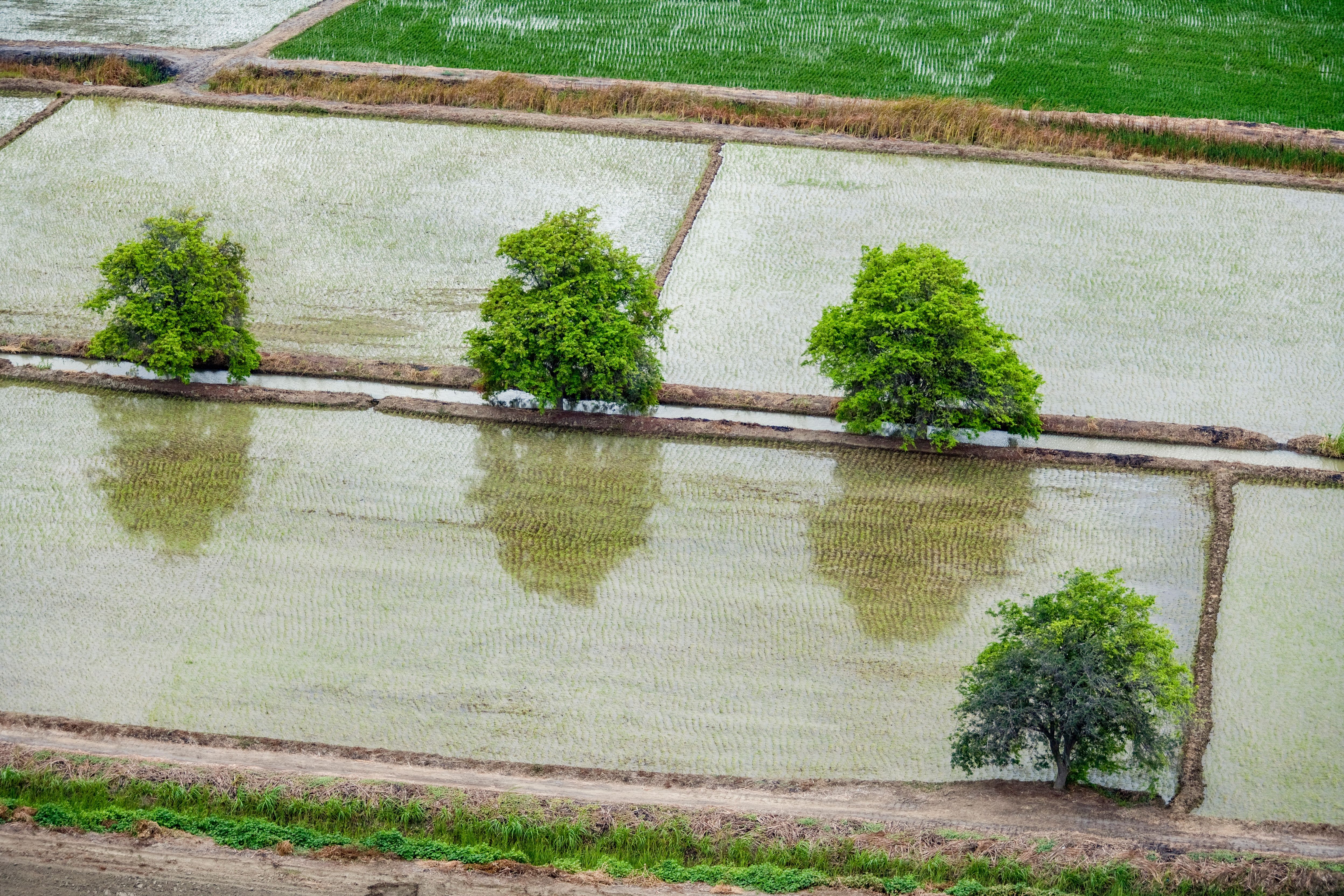
Burning agricultural residues
Burning agricultural residues, such as leftover straw, husks, stems, and leaves in fields after harvesting, generates methane emissions.
Solutions
Methane in the agricultural sector can be reduced through straightforward, evidence-based solutions. These include composting manure, altering cattle feed, consuming less meat and dairy products, and increasing how efficiently water is used in producing rice.
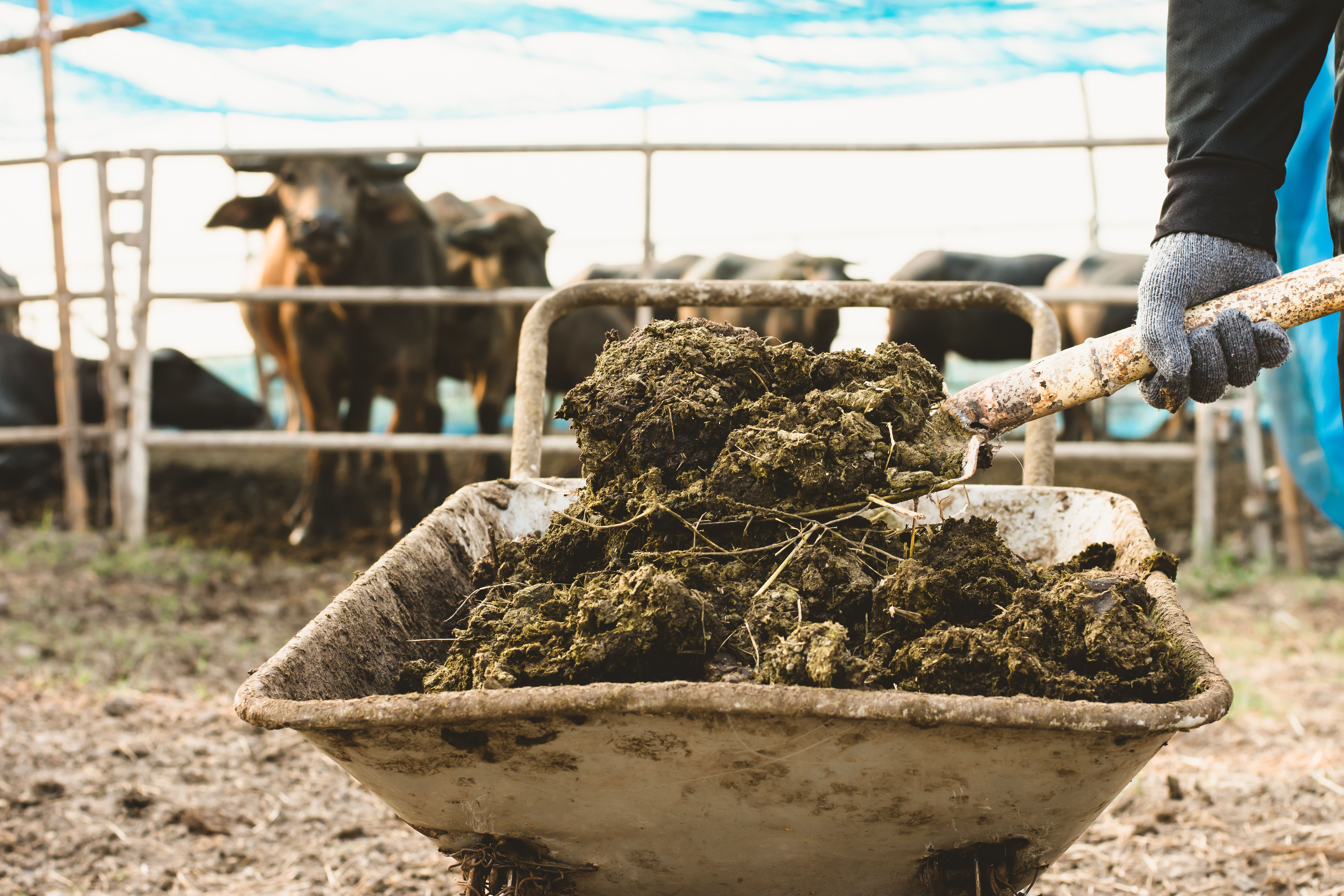
Many solutions have additional benefits. Compost from animal manure can be used to enrich farm fields. Cultivating rice in ways that reduces methane also conserves water without lowering yields. Eating fewer meat and dairy products can improve peoples’ health, such as reducing risk of heart disease.

